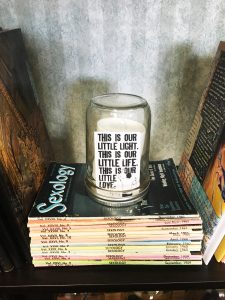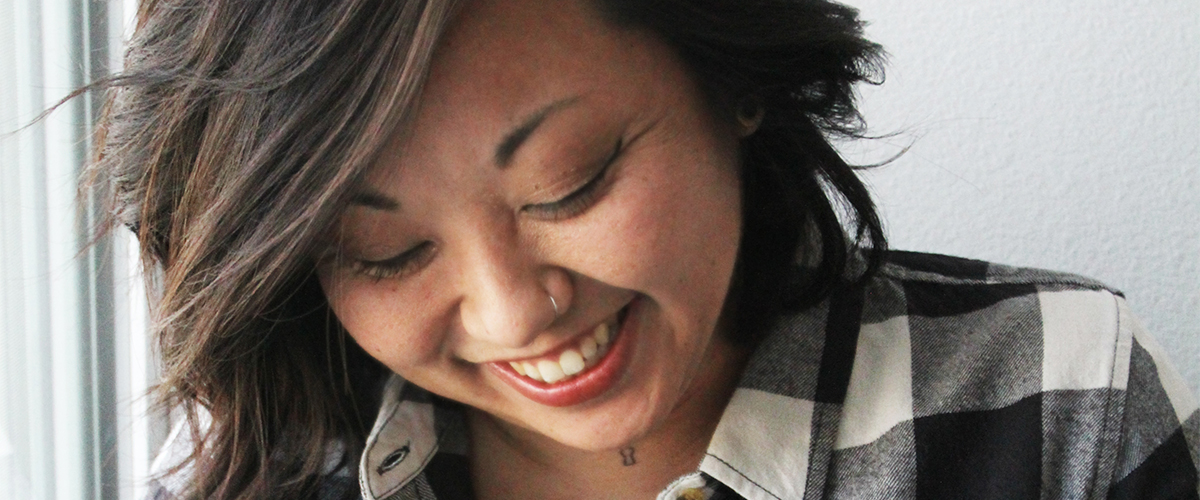Living in the O.C. – the picturesque Los Angeles-adjacent county known for Disneyland, incredible beaches and major league political conservatism – Traci Medeiros-Bagan is a bit of a fish out of water, which is exactly how she likes it.
“I’m a therapist and life coach in Orange County, California, doing my best to offer educated and affirming services to marginalized communities in this little conservative bubble of the West Coast,” she said.
Medeiros-Bagan mainly works with LGB, trans, non-binary, non-monogamous and kink-identified folks. Her work with people facing emotional and social issues rooted in sexual identities led her to consider issues facing sex workers.
“I’ve been trying to reach out to those in and near the adult industry as I’ve seen our communities, as well as the challenges we experience, intersect and overlap in many ways,” she explained.
Medeiros-Bagan took some time out to share a bit more about her work and her approach to making the world a better place via counseling and mental health.
YNOT Cam: First major thing first: What is “compassionate revolt?”
Traci Medeiros-Bagan: “COM|PASSionate REVOLT” is my personal life philosophy as well as the name of my website and practice. It highlights a few different things that are really important to me. I believe that being “passionate” about listening to our internal “compass” while showing “compassion” to ourselves is somewhat of a revolution in this day in age, and that this “REVOLT” is long overdue.
 How does that philosophy factor into your work?
How does that philosophy factor into your work?
Maybe this goes without saying in this space, but I’m sex-positive and sex-worker-affirming. This means I unequivocally support the work folks want to do and the lives they want to live. I just try to support them in making those lives as safe and fulfilling as possible.
I think, due to the stigma that still surrounds this line of work, it also means being very public about a marginalized identity. In this age of YouTube stars and general internet fame (camming included), our personal processes are made very public. This can be a huge gift of reflection and visibility, but it also can be a heavy responsibility to carry. Just like LGBTQ folks – and, obviously, this could also be an identity you carry along with being a sex worker – becoming a cam model means that you will have some sort of public persona.
Having a public persona is something people then have to “manage” or “deal” with. Can that cause mental health issues?
A public persona is one thing to manage, and then there’s a public persona that may carry stigma in some circles. Just like it’s no one’s business who an LGBTQ person is attracted to or what medical services they may be utilizing to be who they are, it’s not necessarily anyone’s business what someone is doing for work. However, these are all labels and information the outside world sometimes feels entitled to.
A cam model may have to decide whether they’re going to be “out”; who they’re going to “come out” to. Perhaps, whether they are going to be “stealthy” about what they do for work. What are they going to do if they “get outted?” There are whole areas of study and theoretical models for coming out, with good reason. It can be a lovely, but complicated, part of a life journey.
What mental health and emotional wellbeing issues may impact cam models, specifically?
Like everyone else, a cam model may struggle with mental or physical health challenges either temporarily or chronically. While this doesn’t necessarily have anything to do with camming itself, symptoms can be exacerbated or instigated by the stigma and discrimination one may experience in this line of work.
Unfortunately, resources aren’t always super-accessible. You’re working in a field where you’re probably not getting health insurance. You also might not feel comfortable accessing services that are available. Along with this, there’s not a lot of structure for how to save/manage money. Your income could fluctuate greatly, and you’re going to have to be bookkeeper, bill payer, banker, tax filer, etc. That’s a lot to manage for any small business owner. Add in trying to be discreet about the money coming in, and things get complicated really fast. Since income obviously ties into getting our basic needs met, this can be quite the challenge.
 You’re part of “Shame Kills Love.” What is that? How can shame negatively impact people?
You’re part of “Shame Kills Love.” What is that? How can shame negatively impact people?
Shame Kills Love is a passion project Kristel Penn of Grooby and Ikigai Marketing and I co-founded, and we have big plans for it as time permits. Kristel and I were at Disneyland, and we saw a mom with her family wearing a “Porn Kills Love” shirt. After some eye rolling and sighing, we actually got into a really important conversation about the dangers of shame, and that spurred the creation of Shame Kills Love.
So this project is not just in support of adult industry performers and sex workers but is, in some ways, especially for them. In its present incarnation, we’ve used it as a platform to discuss shame, sexuality and identity. We’ve also done a few workshops on shame and porn consumption specifically. Perhaps my favorite project is the call that we put out for folks that could use “love letters.” We got all kinds of requests from people asking for themselves and others. Because Kristel and I are fortunate enough to be in a community with a lot of amazing queer folks, sex workers and queer sex workers, we got to send out love to a community we’re particularly invested in.
As I mentioned previously, sex work, particularly camming and film, can be a really amazing gift of visibility and reflection. Is it a perfect reflection? No. Is it a complicated reflection? Yes. However, it shines a particular spotlight on the erotic consumption of desire. What is dangerous about the adult industry is not that it exists, but that we’re ashamed of it. This is how it gets pushed into the shadows, and subsequently the folks that work in it.
This discussion is really tapping into ideas of authenticity, and I know you often refer to yourself as an “authenticity activist.” What does that mean?
As all of us in business for ourselves know, particularly those that overlap with our life philosophy and passion, we often have to figure out how to communicate to the world who we are. While there are a lot of identities I hold, I was looking for something I felt really encompassed the work I do professionally and personally as a therapist, life coach, queer person and human in progress. When it comes down to it, my central core passion is facilitating the journey to our best selves; the place where we feel successful at being the most “us” we can be.
 If you could offer members of marginalized communities one key piece of advice to stay healthy, focused and strong, what would it be?
If you could offer members of marginalized communities one key piece of advice to stay healthy, focused and strong, what would it be?
Self-care and boundary-setting are so important. One of my favorite quotes is from Audre Lorde: “Caring for myself is not self-indulgence, it is self-preservation and that is an act of political warfare.” I believe that to be especially true for marginalized communities.
Never underestimate the power of a few deep breaths and an affirmation that you can handle what’s in front of you. Everyone has time for deep breaths, and they’re so important to get grounded in our bodies, especially, if we’re working with our bodies. Remember you’re a gift. You’re offering the world a reflection of living authentically, even when it’s not easy, and you’re often shedding light on dimensions of identity that don’t get nearly enough attention. Find the place in between knowing what an amazing gift you are and also always reminding yourself that no one is entitled to the representation your existence fights for every day.
Thanks for sharing with us Traci. Your work is amazing, and I hope our readers realize how accessible you are.
I feel so grateful for the many intersecting identities and twists and turns that have brought me into this dialogue. Thanks so much for letting me take up a little space in a community I believe so much in supporting.
—
Traci Medeiros-Bagan is a licensed marriage and family therapist (CA LMFT #86600). Find her online at CompassionateRevolt.com and on Twitter at @CompassionateR1. You may also call her at (657) 333-2396 and email her at compassionaterevolt@gmail.com.











[…] Traci Medeiros-Bagan is a therapist and life coach, doing her best to offer educated and affirming services to marginalized communities. […]
[…] health professional’s opinion on all things “modern mental health,” so, we reached out to Traci Medeiros-Bagan, life coach and […]